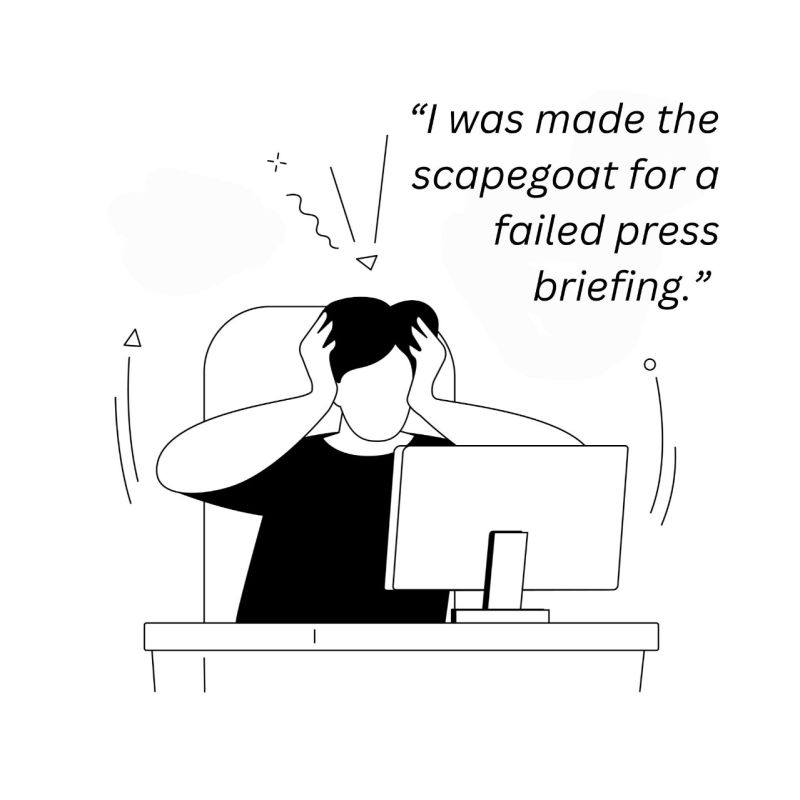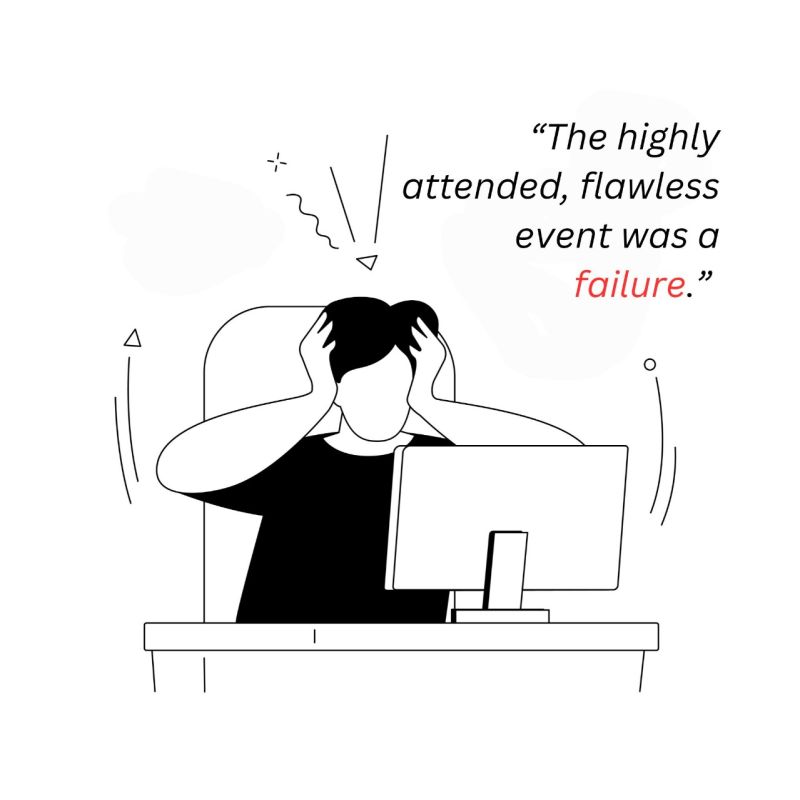“𝐈 𝐰𝐚𝐬 𝐦𝐚𝐝𝐞 𝐭𝐡𝐞 𝐬𝐜𝐚𝐩𝐞𝐠𝐨𝐚𝐭 𝐟𝐨𝐫 𝐚 𝐟𝐚𝐢𝐥𝐞𝐝 𝐩𝐫𝐞𝐬𝐬 𝐛𝐫𝐢𝐞𝐟𝐢𝐧𝐠” ~ PR Scenarios
“The conference room felt colder than usual as I sank into my chair, staring at the empty rows meant for journalists. Not a single journalist had shown up. My stomach tightened. I had known this would happen, and yet here I was, the scapegoat for a failed press briefing.
It all started a few weeks earlier, when leadership insisted that we hold a media briefing for what I thought was a minor operational update. I voiced my concerns, explaining that it wasn’t newsworthy and suggesting a press release instead if we needed to share something at all. But my objections were dismissed. “The media will come,” they insisted, you would think they were assigning editors. “This is important.”
Since I couldn’t win on this one, I had to embrace the task. So, I did my job. I drafted invitations, reviewed my media list, sent emails to every major news outlet, made follow-up calls, and double-checked that the invitations had been received. The responses were lukewarm at best. Some journalists politely declined, with others outrightly asking why a press release wouldn’t suffice. Still, I clung to the hope that at least a few would show up. That was a grave mistake.
On the day of the briefing, reality hit hard. The empty room confirmed what I had feared all along. I felt the weight of leadership’s disapproval before they even said a word. My failure was apparent, and I knew I would have to answer for it.
Later, as I reflected on the situation, I admitted to myself that I had known the briefing was unnecessary but had been too afraid to push back harder. I reminded myself that part of my role in PR is to be the voice of reason. Leaders don’t always understand how the media works, and it is my job to guide them even if it means pushing back.
I needed to take ownership of what had happened, but not as a failure, rather, as an opportunity to learn. Instead of making excuses, I analyzed the situation and outlined alternatives for the future. I had to show leadership that I was thinking ahead.
PR has never been about following orders. PR has always been about shaping strategy. I realized that I needed to build trust with leadership so that my expertise would be taken seriously next time. I also realized that while my strong relationships with journalists gave me a better sense of what they found newsworthy, it was important not to take those relationships for granted by offering weak content.
This experience taught me one of the most valuable lessons in my career. That PR is not about doing what is asked. It is about knowing what works whether through data or experience and applying accordingly.
Failure was not final. It was feedback. Since then, every time I see a train wreck coming, I do not just stand on the tracks. I speak up, push back when necessary and ensure that our PR efforts are effective.”





Leave a Reply